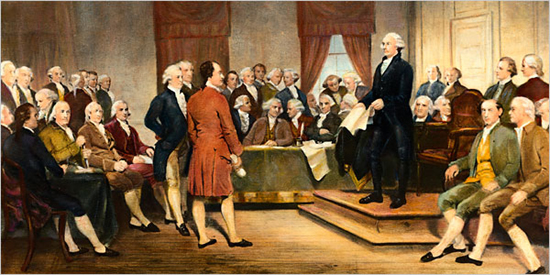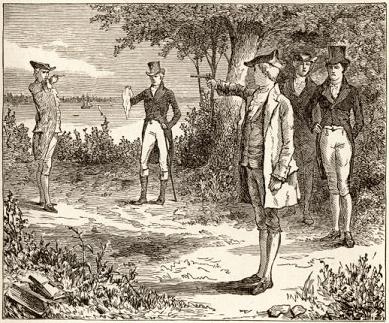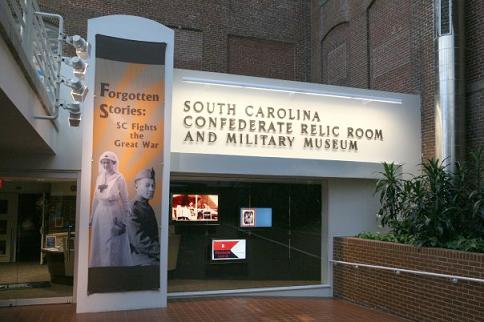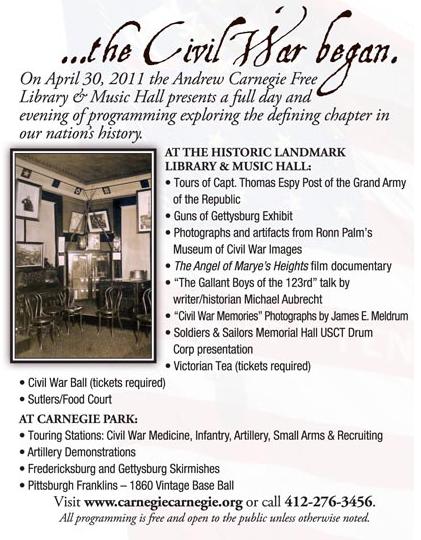Say what?
 Continuing on yesterday’s theme about the dangers of debating with historical quotes, another issue that has spread like wildfire across the Internet is the dissemination of faked or fabricated quotes. This deplorable practice is perpetrated in one of two ways: either the user extracts a section of a much larger statement in order to use it out of context, or they simply invent something that they believe ‘sounds’ like the intended author would have said.
Continuing on yesterday’s theme about the dangers of debating with historical quotes, another issue that has spread like wildfire across the Internet is the dissemination of faked or fabricated quotes. This deplorable practice is perpetrated in one of two ways: either the user extracts a section of a much larger statement in order to use it out of context, or they simply invent something that they believe ‘sounds’ like the intended author would have said.
I cannot believe how many misquotes exist on the Internet. Making matters worse, people don’t take the time to validate their information and simply copy and paste these quotes again and again. Whether it’s a case of ruthlessness or laziness, the results are the same. Here are some examples:
This fake quote from John Adams is used repeatedly on atheist’s sites all over the web:
This would be the best of all possible worlds if there were no religion in it!!!
What Adams actually wrote (in context):
Twenty times in the course of my late reading have I been on the point of breaking out, "This would be the best of all possible worlds, if there were no religion in it!!!" But in this exclamation I would have been as fanatical as Bryant or Cleverly. Without religion this world would be something not fit to be mentioned in polite company, I mean hell. – John Adams, quoted from Charles Francis Adams, ed, Works of John Adams (1856), vol. X, p. 254
Here is a fabricated quote from Thomas Jefferson:
The Christian god can easily be pictured as virtually the same god as the many ancient gods of past civilizations. The Christian god is a three headed monster; cruel, vengeful and capricious. If one wishes to know more of this raging, three headed beast-like god, one only needs to look at the caliber of people who say they serve him. They are always of two classes: fools and hypocrites.
Positive Atheism Magazine did their homework before re-quoting this one and contacted the folks at the Thomas Jefferson Library in an attempt to find a source for this statement. Their reply:
The Jefferson Presidential Library has searched for the following alleged quotation and cannot find it within their collection of known and verified Jefferson writings. Therefore we think this quotation is probably a forgery and recommend its removal from all quotes collections.
Finally here is one of the most popular misquotes from Benjamin Franklin:
Lighthouses are more useful than churches.
The closest anyone has found to this statement is an excerpt from a letter that Franklin wrote to his wife on July 17, 1757. It was originally printed in a footnote on page 133 of Memoirs of the Life and Writings of Benjamin Franklin (1818). After describing a narrow escape from shipwreck he added:
The bell ringing for church, we went thither immediately, and with hearts full of gratitude, returned sincere thanks to God for the mercies we had received: were I a Roman Catholic, perhaps I should on this occasion vow to build a chapel to some saint, but as I am not, if I were to vow at all, it should be to build a light-house.
So the next time you are Googling the Internet in search of words of wisdom from the Founding Fathers, double check your sources and if they are not available, don’t quote them. There are a lot of credible books out there that contain this information and I highly recommend using them in place of the web.
What did he say?

Over the last week my friend Richard Williams and I have been sharing a spirited debate about the Tea Party Movement. One of our discussions deals with the Founding Father’s intent in regards to religion and government (Read Here). You may notice that Richard loves to use quotes. I sometimes use quotes too, but over the last few days, I have come to the conclusion that they simply don’t work by themselves in support of an argument. Why? When a quote is used in isolation simply to defend one’s view against another, there is no context or time reference. It has been literally cut from its place and time or origin and pasted into another. Most of the time this renders the quote moot. Just like us, people throughout the course of history have changed their minds and evolved. What is said today, may contradict what is said tomorrow. If you were to quote Abraham Lincoln’s views on slavery early in the Civil War, and then quoted him on the same subject after, you would get two completely different perspectives. Same with the Founding Fathers, their memoirs, letters and publications are full of contradictions and hypocrisy. Quoting complex individuals like a John Adams or Thomas Jefferson in isolation can be dicey at times. These were brilliant men who lived in an "Age of Enlightenment" and penned thousands of papers. They were also constantly re-evaluating the world around them.
Our current debate deals specifically with the establishment of the country’s foundation and what did the Founders believe at that time. Richard contends that the Founders established a Christian nation, while I believe the concept of a 'Christian nation' goes against the very essence of what they were trying to accomplish. Here are two examples of quotes that Richard offered and my counter-quotes. I have added the source information for reference:
Thomas Jefferson:
Richard’s: “The practice of morality being necessary for the well being of society, He [God] has taken care to impress its precepts so indelibly on our hearts that they shall not be effaced by the subtleties of our brain. We all agree in the obligation of the moral principles of Jesus and nowhere will they be found delivered in greater purity than in His discourses.” – Thomas Jefferson to James Fishback (1809)
Mine: “Because religious belief, or non-belief, is such an important part of every person's life, freedom of religion affects every individual. Religious institutions that use government power in support of themselves and force their views on persons of other faiths, or of no faith, undermine all our civil rights. Moreover, state support of an established religion tends to make the clergy unresponsive to their own people, and leads to corruption within religion itself. Erecting the ‘wall of separation between church and state,’ therefore, is absolutely essential in a free society.” – Thomas Jefferson to Virginia Baptists (1808)
John Adams:
Richard’s: “The general principles on which the fathers achieved independence were the general principles of Christianity. I will avow that I then believed, and now believe, that those general principles of Christianity are as eternal and immutable as the existence and attributes of God.” – John Adams to Thomas Jefferson (1813)
Mine: “The United States of America have exhibited, perhaps, the first example of governments erected on the simple principles of nature; and if men are now sufficiently enlightened to disabuse themselves of artifice, imposture, hypocrisy, and superstition, they will consider this event as an era in their history. …It will never be pretended that any persons employed in that service had interviews with the gods, or were in any degree under the influence of Heaven, more than those at work upon ships or houses, or laboring in merchandise or agriculture; it will forever be acknowledged that these governments were contrived merely by the use of reason and the senses.” – John Adams, A Defence of the Constitutions of Government of the United States of America (1787-88)
So were they for or against establishing America as a Christian-Nation? In this case both quotes contradict one another. One could dispute the time context, in which case the older quotes (mine) would be accurate as they are closer back to the country’s founding. However, you could counter-argue that both men grew to embrace the concept in which case the newer quotes (Richard’s) are plausible. My point is that you can quote and counter-quote people again-and-again and still not know what they were truly thinking. One quick search on the Internet reveals hundreds of pages of historical quotes, which have been isolated and manipulated to support all kinds of agendas. Christians, atheists, conservatives and liberals all have websites that reprint the Founding Father’s words for and/or against their cause.
So who is right and who is wrong? I think the answer is – it depends…
Next piece for PAR

I am researching material for a piece for Patriots of the American Revolution magazine about the infamous Alexander Hamilton – Aaron Burr duel. In addition to the event itself, I am including a sidebar that outlines the proper rules of engagement for dueling. Burr is someone that I know very little about and I am looking forward to learning about his life after the duel. What was it like to be the man who killed Alexander Hamilton? Burr’s adversary has always been a perplexing character to me and at first glance, personifies the stubborn “alpha-male” who is incapable of standing down. I wonder if this is true. Two of Hamilton’s peers, Ben Franklin and George Washington both opposed the practice of dueling. Franklin referred to duels as a “murderous practice” adding that “they decide nothing” and Washington urged his officers to refuse any challenges during the Revolutionary War. Unfortunately these opinions were lost on their colleague who was mortally wounded and died on July 12, 1804.
The end of the article will deal with the after-effects of Hamilton’s death on the public’s conscience. Many people are unaware of the anti-dueling movement that arose from his death. Hamilton’s father-in-law attended a church in Albany where Pastor Eliphalet Nott gave a sermon that was reprinted in a tract titled A Discourse, Delivered in the North Dutch Church, in the City of Albany, Occasioned by the Ever to be Lamented Death of General Alexander Hamilton, July 29, 1804. Two years later, a minister named Lyman Beecher delivered an anti-dueling sermon later re-printed in a pamphlet as The Remedy for Dueling, which was distributed by the Anti-Dueling Association of New York. Both clergymen were more successful in spreading their message than their predecessor, the Reverend Mason Weems, who had published a fiery pamphlet titled God’s Revenge Against Dueling prior to the Hamilton-Burr match. In this sense, Hamilton’s death helped to bring about the end of dueling in America.
Movies and museums

There are two items of note that I would like to share today, both are in regards to museums. Last week my partner Clint Ross and I received a request from the good folks at the Confederate Relic Room Museum in Columbia SC, who wanted to add our movie to their exhibits. Needless to say we granted them permission and they changed the museum’s entry exhibit from a WWI film to ours. Now every visitor entering the CRRM will see “The Angel of Marye’s Heights” running in a loop. As soon as I get a photo of the exhibit, I will post more detail over on the movie’s blog. BTW: Right Stripe Media has been working pre-production for our next project and I will share the details in a future post.
Yesterday The Free Lance-Star published an Op-Ed on behalf of the National Civil War Life Foundation. Many of you know that I sit on the board and handle the NCWLF’s website. Over the last 3 years we have had our share of ups and downs while trying to establish a new museum in the Fredericksburg/Spotsylvania area. Our primary goal as of now is simply establishing a venue. We have a collection of over 2,000 items and no place to share it with the public. Hopefully this letter will generate some support. You can read our statement here.
Save the date

 Continuing on yesterday’s theme about the dangers of debating with historical quotes, another issue that has spread like wildfire across the Internet is the dissemination of faked or fabricated quotes. This deplorable practice is perpetrated in one of two ways: either the user extracts a section of a much larger statement in order to use it out of context, or they simply invent something that they believe ‘sounds’ like the intended author would have said.
Continuing on yesterday’s theme about the dangers of debating with historical quotes, another issue that has spread like wildfire across the Internet is the dissemination of faked or fabricated quotes. This deplorable practice is perpetrated in one of two ways: either the user extracts a section of a much larger statement in order to use it out of context, or they simply invent something that they believe ‘sounds’ like the intended author would have said. 








